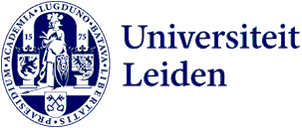
A call about: the EuroScience Open Forum (ESOF)
Would you like to organise a session during the biggest multidisciplinary event in Europe - the EuroScience Open Forum (ESOF) conference - to be held in Leiden from 13 to 16 July 2022? If so, send us your proposal! Archaeologist Corinne Hofman is one of the driving forces behind the conference and she tells us what makes ESOF so unique. ‘Science with society. That’s what ESOF is all about.’
What kind of conference is ESOF and what makes it so special?
‘ESOF is the biggest multidisciplinary science conference in Europe. The conference will be in its tenth year next year, and as Leiden is European City of Science in 2022, the conference is going to be held here. The main aim of the conference is to build bridges and cross borders, hence the title: Crossing Borders.’
‘These could be borders between different scientific disciplines, such as medical science, natural sciences, humanities and social science, for example. But, equally, they could be bridges between countries and stakeholders and between science and society.’
‘And then there’s also bridges between today and the future: what are the major issues we need to address now to safeguard a safe and healthy future? The five key scientific themes of the conference are the hottest topics of the present day, and include such key issues as sustainability and a healthy society.’
‘We don’t want the ESOF to be about science for society, but rather science with society. It’s only by working together that we can tackle the big challenges currently facing us, such as climate change and pandemics. Policy-makers, representatives from government and from industry, and journalists will be coming to the conference specifically to discuss these crucial issues with a wide range of national and international researchers.’
Why is ESOF of particular interest for young researchers?
‘Besides these current scientific themes, there are a further two topics that are definitely relevant for young researchers: Back to Business and Off the beaten track: new paths for Academic Careers. In other words, how do you shape your academic career and how can you work together with industry? Our Young Academy Leiden plays a role here, which is great; they are also organising a series of workshops. I’m hoping that a lot of young researchers will submit proposals for an interesting panel discussion, workshop, debate or poster presentation.’
How are you involved in ESOF?
‘Ferry Breedveld, former President of the Executive Board of LUMC, and I are the ‘local champions’ for the conference, working with a scientific advisory council that has representatives from all the different faculties. We decided on the themes and ideas for the sessions together. What I think is particularly important is that we have future-oriented issues on the agenda, such as migration, identity and European heritage. We also want to make room for different perspectives, paying more attention to non-Western thinking, for example. We’re encouraging contributors to be innovative in the formats they use for their presentations, so as to encourage interaction and discussion. There are some interesting key threads running through the different themes, such as artificial intelligence and big data, both of which play a role in just about every research project carried out today. All these themes will come together next July in Leiden at the ESOF conference. I’m really looking forward to it, and I’m hoping for a lot of submissions from Leiden that will result in a wealth of inspiring, international and diverse conference sessions.’
Call for proposals ESOF
The themes of the ESOF conference are:
- a sustainable environment
- cultural identities and societal transformations
- space for science
- healthy societies
- freedom and societal responsibility of science
Leiden researchers are invited to organise a panel discussion, workshop, debate, poster presentation or other session. The call for proposals is open until 30 November 2021.
A call about
There is a lot happening within Leiden University. The websites are filled with news on a daily basis. In the section 'A call about' we ask one of our employees to tell us more about a relevant and topical subject within the university. The answers give you more insight into the facts, but above all give you more personal background information. What was fun or frustrating? What was remarkable? What was good and what was bad? You can read all about it in 'A call about'.
